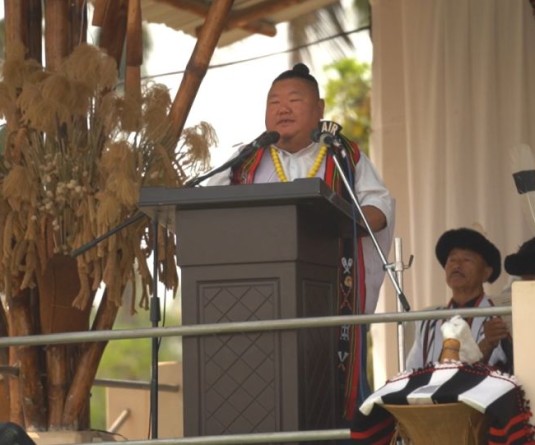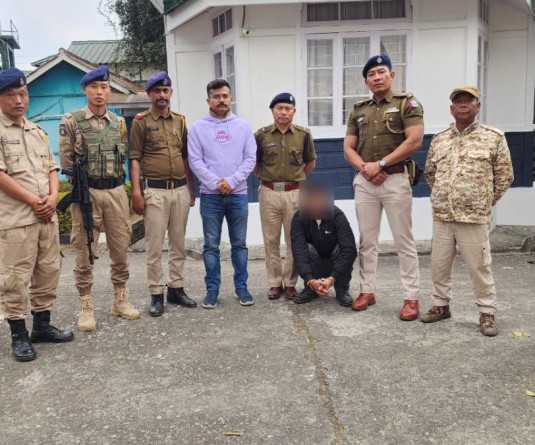
KOHIMA, APRIL 26 (MExN): Nagaland’s Lok Sabha MP, S. Supongmeren Jamir has addressed a series of letters to JP Nadda, Union Minister for Health & Family Welfare, raising multiple concerns regarding the healthcare situation in the state.
In his letters, Jamir highlighted three issues, particularly focusing on the challenges faced by medical graduates, the lack of essential healthcare facilities, and staffing shortages at the Central Government Health Scheme (CGHS) Wellness Centre in Kohima.
One of the main concerns raised by the MP is the absence of a dedicated NEET-PG examination centre in Nagaland, which has placed a significant burden on aspiring medical professionals. With no such centre in the state, medical graduates are forced to travel long distances to other states, incurring both financial and logistical hardships.
While Dimapur was previously allocated as an NEET-PG centre, Jamir noted that the available seats were quickly filled, leaving many candidates without access to the examination. He has appealed for Kohima and Dimapur to be reinstated as NEET-PG centres, ensuring that medical aspirants have equitable access to the examination closer to home, thereby alleviating the undue stress on them.
The MP also raised concerns about the lack of AYUSH facilities at the CGHS Wellness Centre in Kohima, particularly the absence of Ayurvedic and Homeopathic units. While other capital cities in the North-East are equipped with such facilities, Kohima remains an exception. Jamir referred to a 2019 Ministry directive that recommended the establishment of AYUSH units in 26-27 cities across the country and urged the Union Minister to take immediate steps to address this gap. He emphasized that providing AYUSH services in Kohima would greatly enhance the region's healthcare services, meeting the growing demand for such alternative therapies among local populations.
Furthermore, during his recent visit to the CGHS Wellness Centre in Kohima, Jamir observed a severe staff shortage, with only two permanent employees currently serving in a facility that has three sanctioned posts. He has recommended increasing the sanctioned strength to at least eight, which would allow for more medical officers, pharmacists, support staff, and administrative personnel.
Jamir also pointed out that no local hospitals are currently empanelled with the CGHS due to the low CGHS rates and the absence of adequately equipped facilities in the region. He proposed a revision of CGHS rates, especially for the North Eastern states, to make empanelment more attractive to private hospitals in the region.
In his letters, Jamir stressed the urgent need for intervention by the Union Ministry to address these issues, particularly as the government's vision is to improve healthcare services across the North-East. He expressed hope that his concerns would be taken seriously and that swift action would be taken for the welfare of the people in Nagaland.






